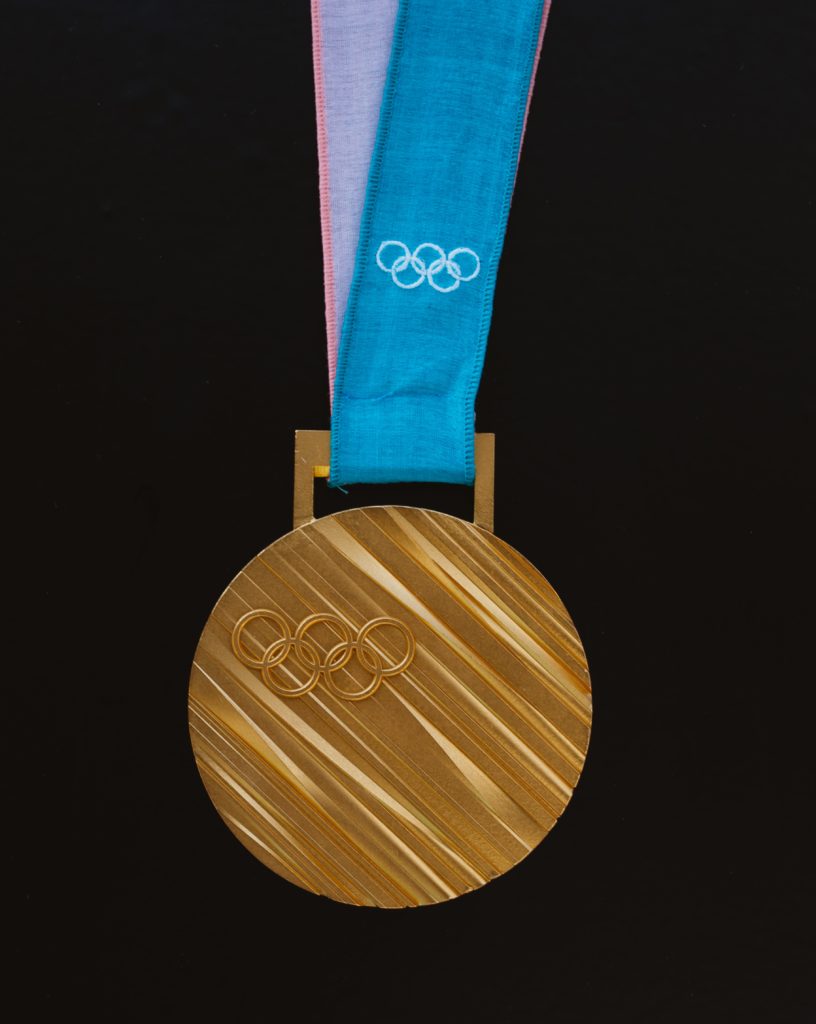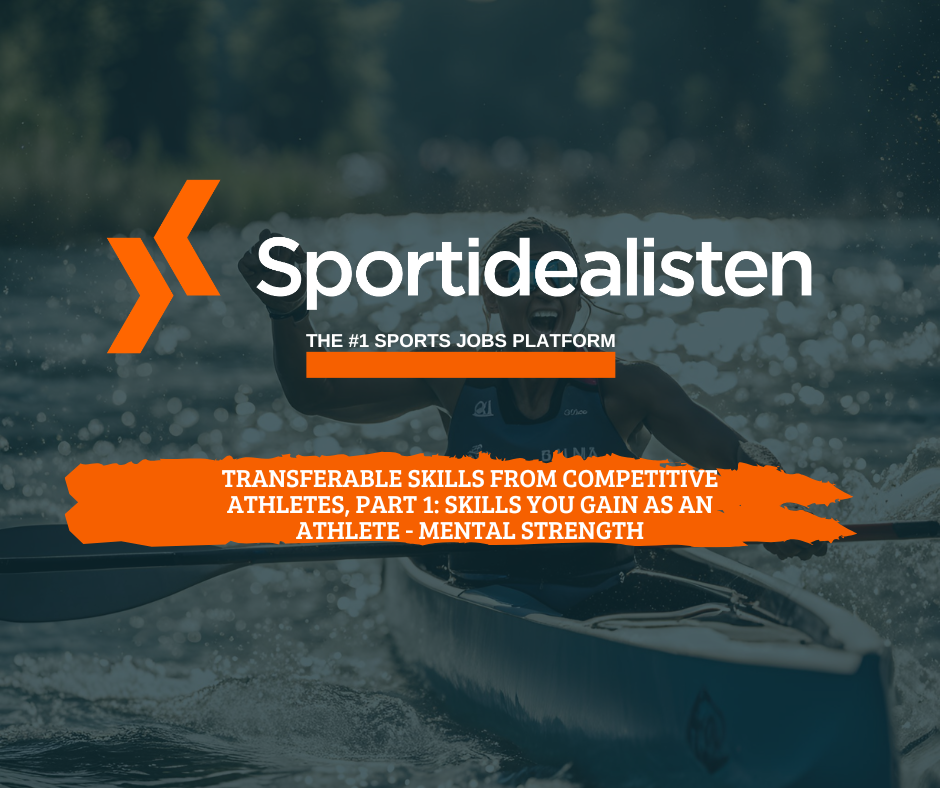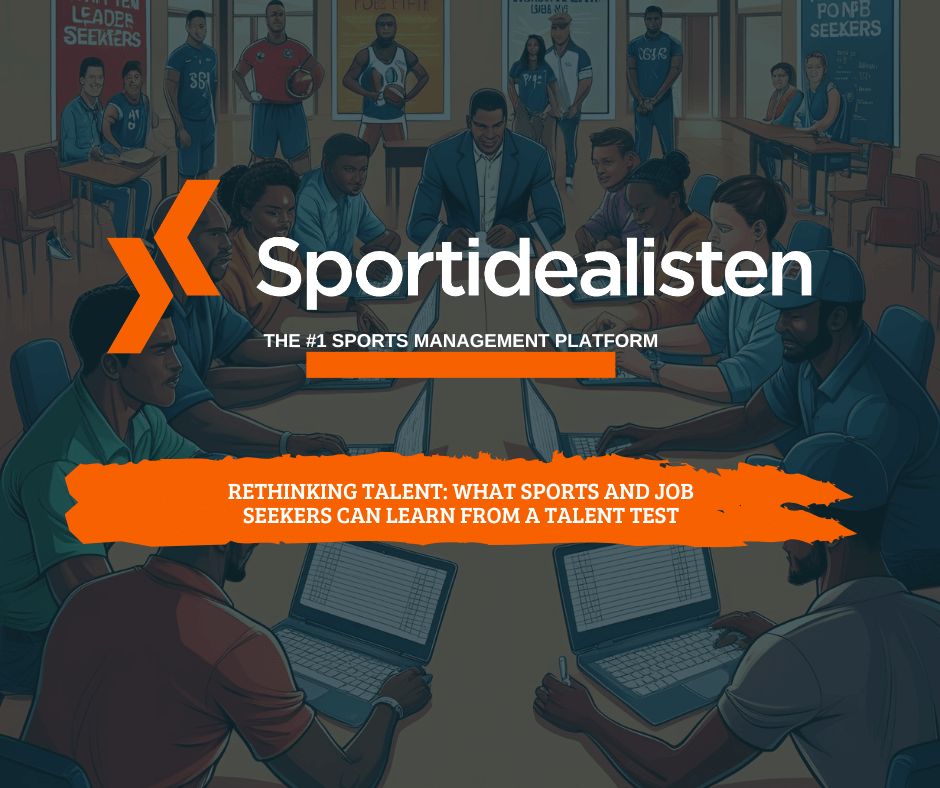As an athlete there are many great skills being developed and those are not only for an athlete, their skills can be useful in other contexts too, for example in an entrepreneur’s environment. This is what we call transferable skills. During the spring of 2020, right at the beginning of the Covid-19 outbreak in Sweden, our founder Jakob had the opportunity to sit down at an entrepreneurial event with four elite athletes with extensive knowledge of personal durability, the knowledge that has given them a total of thirty Olympic and World Cup medals combined. In this article, one of Sweden’s most successful canoeists, Susanne Gunnarsson will share how she become one of the greatest and what skill that took her to the top.
Transferable skills from athletes: Skills you gain as an athlete
This is a four-part series where we share the conversation from a panel discussion from an entrepreneurial competition during spring 2020, and we have divided each athlete’s story and experience into a separate blog post. Usually, when we are talking about skills, we are talking about skills needed in different jobs. Job ads contain some required skills for a role or some preferable skills needed. Even if you don’t have that skill from previous job experiences you might already have the skill from other experiences. You might have played sports and probably you have learned about teamwork, goal setting or showing respect. This is something you could bring into your future job, and this is what we call transferable skills. You could basically acquire skills from other experiences in life than a job, but also from one industry into another. For example, what can entrepreneurs learn from athletes? First up is Susanna Gunnarsson, one of Sweden’s most successful canoeists and she explains how to develop the secret to her successes and why it is her strongest skill.
Want to learn more about balance, focus and curiosity, pressure, head over to part 2 or 3 or 4 below.
A panel discussion with elite athletes at Creative Business Cup
The entrepreneurs in the Swedish final of the Creative Business Cup held on 12 March competed with their ideas, business models and teams – but also had to learn how they can think for themselves to manage their business concepts. To aid the contestants there were four elite athletes with extensive knowledge of personal durability, the knowledge that has given them a total of thirty Olympic and World Cup medals combined. An entrepreneur and an athlete are quite similar, they want to succeed. And therefore we can look into what an entrepreneur could learn from sports into their own adventure, what are the transferable skills from athletes?. Over four articles we present the thoughts of the four athletes. In the first, one of Sweden’s most successful canoeists, Susanne Gunnarsson, talks about mental strength.
As entrepreneurs strive to build the companies of the future it is important that they also find ways to maintain satisfaction so they can perform what is necessary. Elite athletes and their coaches are used to finding ways to perform to the highest level, both in the short and long term. For this reason, four representatives with elite sporting experience were a key part of the Swedish final of the Creative Business Cup.
– We want to give start-ups, businesses, and organizations the opportunity to share the broad knowledge that elite athletes and top coaches have in relation to strategies and processes for personal durability. Our vision is for an ecosystem where entrepreneurs, business coaches and investors collaborate closely, in sustainable business practices and with people at the core, says Lars Mattiasson from xPlot, who organizes the Swedish part of the Creative Business Cup. The arrangement was made in collaboration between Lund Municipality and Future by Lund.
The panel consisted of William Seth-Wenzel, a gold medal winner in jujutsu at both World and European Championship level and a student at KTH; Susanne Gunnarsson, with a total of 17 World Championship or Olympic medals in canoeing and now working as a coach, lecturer and treatment assistant; and Rob Haans, with several individual World Championship medals and now part of the Swedish national team in jujutsu. Joining via video link was Klara Svensson, former professional boxer with several world titles and now a self-employed business owner. The debate was led by Jakob Wikenstål with both an academic degree in sports management and experience as an entrepreneur through the job platform Sportidealisten.
The discussion came to be about what it is like to deliver every day to maintain momentum and stick to your big goals and dreams. It was also about how to work for the team to function, but also daring to be selfish and clear when asking for help to get what you really need. All necessary skills for an entrepreneur, basically great transferable skills from sports.

First up in our interview series about transferable skills is Susanne Gunnarsson, one of Sweden’s most successful canoeists. Susanna has won Olympic gold in K-2 500m in 1996 and World Championship gold in K-1 5000m in 1993, in addition to two Olympic silver medals, and three silver and five bronze at the World Championships. Furthermore, she won five World Championship golds in the canoe marathon between 1992 and 1998. She is unique in that in 1996 she won gold for both the Olympic sprint race and World Championship marathon. Nowadays she works as a coach, lecturer, and treatment assistant.
– When I was active, I remember that we listened to a tape with the psychologist Lars-Eric Uneståhl before training, but not much more was done at the time. During the 90’s I began to wonder what I needed to be the strongest – of course it was good to train, but also to change my thoughts. I worked on my thoughts by myself and it really strengthened me. What I did was, amongst other things, every night repeat the following words ten times “I am the best, I am the strongest”. Until finally it was ingrained in me. In a World Championship or Olympic final all the competitors are equally well trained – but it is the one that is mentally the strongest that wins.
How did you work on your goals?
– For me it has been important to write down my goals and my sub-goals along the way. I made it simple and drew a mountain with dashes on the path where I highlighted what I needed to do to reach the top. There were visions and sub-goals and the dream at the summit was Olympic gold. I kept my goals on my nightstand so I could look at it. Whenever I faced adversity, I analyzed what had happened because there are no shortcuts, and you must make changes to be able to take the extra step. That way I learned what was needed to make it all the way to the top. It is tough to be an elite athlete, mother, and friend at the same time and you have to learn to be part of and withdraw from circles and sometimes it is important to let go of something to get the energy. I recognise that this is the case even for entrepreneurs who work and focus on their businesses.
You gave birth to your second daughter four weeks before the 1994 World Championship in the canoe marathon. Many women may have waited to have children in their career – do you notice any differences today in that discussion?
– When my daughter was born it was four weeks to the World Championships and I had not really been able to train for eight weeks. But I was out trying to paddle five days after giving birth and it felt good. Then at the World Championships I won gold. I was one of the first in the world to resume my career after I became a mother. If it feels right, then it works. In a way, it is quite easy to bring children along when they are young, and you have a lot of energy as a mother. It should be the same when working for companies and it is good to be able to bring children to work. I believe that I see more young children brought to work these days.
How can you attain a sustainable personal life as an entrepreneur?
– It is important to feel joy and inspired by what you do. If you can do that, you will be able to achieve what you want to do!
In the next part about transferable skills from athletes, we speak with William Seth Wenzel, a martial artist in jujutsu. In 2019, William was named Champion of the Year and Martial Artist of the Year at the Kampsportsgalen (an award gala for combat fighters) for his gold medals at the World Championships and European Championship.
If you missed the second or third or fourth part about Balance and Focus, Teamwork and Values curiosity, Pressure and Solely responsible check them out here.
This story is made by Caroline Wendt at Future By Lund and the original story comes from here: Athletes teach entrepreneurs to be durable, Part 1: Susanne Gunnarsson – mental strength.
If you liked this article, may want to read these:
Transferable skills from competitive athletes part 4: Handle pressure and being solely responsible
Transferable skills from competitive athletes part 3: teamwork, values curiosity






3 thoughts on “Transferable skills from competitive athletes, Part 1: Skills you gain as an athlete – Mental strength”
Comments are closed.